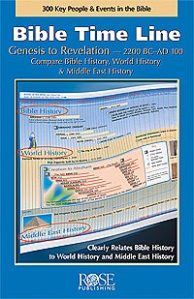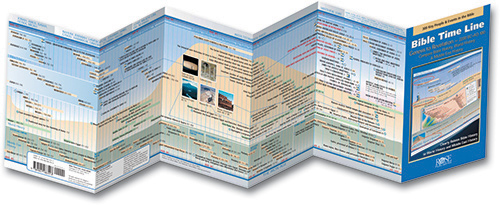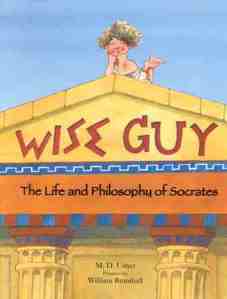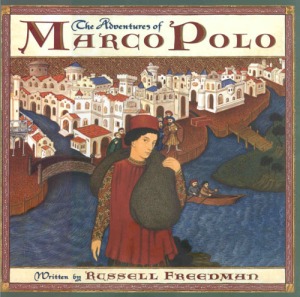The Tennessee Department of Education has recently defended its decision not to recognize homeschool diplomas with the assertion that because they were prohibited from having anything to do with the selection of a curriculum, teachers, or textbooks in the church-related schools which “umbrella” homeschoolers they had no way to tell what a homeschool diploma represented.
So, the current status in Tennessee is that anyone from a public school (or a private accredited school) who presents a diploma in order to be hired as a daycare worker, police officer, fireman (or any other position which state law requires a high school diploma for) will be automatically accepted. Anyone who presents a homeschool diploma will be automatically rejected.
I have some news for the Department of Education officials. When a public school graduate presents a diploma, no one has any way to tell what it represents either. Did the ertswhile young graduate have an A average or a D- average? There is no minimum GPA requirement for graduation from a public high school in Tennessee. See the graduation requirements here on the Department of Education website for confirmation.
The final requirement on that page requiring a score of “proficient” on the three Gateway exams (Biology I, English II, Algebra I) has been altered, by the way. The Gateway exams are gone. They will be replaced with ten standard state-wide end-of-course tests that all public school students will be required to take. But the new tests won’t be high-stakes must-pass gateway exams. Instead, they will count as 25% of the student’s final grade in each of the ten designated courses.
Which only exacerbates the problem of how do you know what a public school diploma represents? Apparently it represents 20 courses, spread over four years (five per year) distributed over English, Math, Science, & Social Studies. In these four categories, only English is required to be taken in all four years of high school. So all you really know about a public school graduate with a high school diploma is that they at least passed 20 courses.
I don’t know of ANY private school, church-related school, or homeschool anywhere in Tennessee that requires LESS than 20 courses before they award a high school diploma. And yet, homeschool diplomas are automatically rejected by the Department of Education, while public school diplomas are automatically accepted.
In TN, 92% of high school graduates take the ACT test. In 2007 (the last year for which data was available) the average composite score for Tennessee high school grads was 20.7. Nationally it was 21.2.
And homeschoolers? The latest and largest study is from 1998, but since the ACT is so closely controlled statistically, it is possible to compare test scores from year to year. Here’s an excerpt from the ERIC clearinghouse on Assessment and Evaluation:
Home school students did quite well in 1998 on the ACT college entrance examination. They had an average ACT composite score of 22.8 which is .38 standard deviations above the national ACT average of 21.0 (ACT,1998).This places the average home school student in the 65th percentile of all ACT test takers.
The superior performance of home school students on achievement tests can easily be misinterpreted. This study does not demonstrate that home schooling is superior to public or private schools. It should not be cited as evidence that our public schools are failing. It does not indicate that children will perform better academically if they are home schooled. The design of this study and the data do not warrant such claims. All the comparisons of home school students with the general population and with the private school population in this report fail to consider a myriad of differences between home school and public school students. We have no information as to what the achievement levels of home school students would be had they been enrolled in public or private schools. This study only shows that a large group of parents choosing to make a commitment to home schooling were able to provide a very successful academic environment.
The full article is Scholastic Achievement and Demographic Characteristics of Home School Students in 1998, by Lawrence Rudner, published in the peer-reviewed EDUCATION POLICY ANALYSIS ARCHIVES.
There are specific ACT results for homeschoolers in Tennessee for only one year:
YEAR : 2005
Homeschoolers : 20.7
All Students: 20.5
( ACT report, TN, 2005, page 17)
For some curious reason, ACT no longer reports the homeschool ACT scores separately in its reports for 2006 and 2007.
So, in summary: Homeschoolers as a group have superior performance on every nationally normed test for which data are available, significantly above the public school average. Homeschoolers in Tennessee, as a group, have average ACT scores at or above the ACT scores for all students.
AND YET… the Department of Education somehow BELIEVES that they can’t accept a homeschooling diploma because they don’t know what it represents. Given the incredibly wide variation of skills an achievement that can accompany a public school high school diploma, something about the pot, the kettle, and the color black occurs to me. Class…? Class…? Anyone…? Bueller…?
Colleges and universities across the country have faced this problem for years. What does a high school diploma mean, anyway? Their solution? Require all applicants to take the ACT.
Now, if the POST Commission on police officers and the Department of Human Services regs on daycare workers need to be revised to require ALL applicants to take an ACT test in order to validate and help agencies evaluate their high school diploma, that would be fine.
But DO NOT single out homeschool or church school graduates as if their high school diplomas were suspect, while the public school diplomas are not.
Homeschoolers have every bit as much data to substantiate the success of homeschooling as anything the public schools can point to. For the Department to automatically reject homeschooler’s diplomas is insulting. It could not possibly survive a legal challenge.
If the Department will not overturn their arbitrary and capricious policy, then homeschoolers should pursue remedies in the courts, or in the legislature.
But I am NOT willing to concede that homeschoolers should have to meet any additional testing burdens that are not also imposed on all other high school graduates. A homeschool diploma deserves every bit as much credence (I’d argue more so) than a public school diploma.
The Department of Education’s actions amount to an unsubstantiated, unprofessional, and unjustified attack on homeschooling.
The Department of Education has 1,000,000 students in public schools in Tennessee. Do they really want to pick this fight with homeschoolers?
– Rob Shearer
proud homeschooling dad
Director, Schaeffer Study Center
Vice President, Tennessee Association of Church Related Schools.
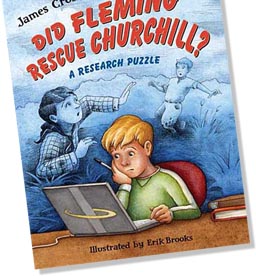 Along comes an excellent book on precisely this topic – by an accomplished writer of children’s biographies and non-fiction, James Cross Giblin. The book is written as a first-person narrative by Jason, a fifth grade boy. In 64 pages Giblin has us follow along as Jason works on an assignment to write a three-page biography of Alexander Fleming, the inventor/discoverer of penicillin. Jason starts with traditional sources, encyclopedia articles and library books. And then he also does some internet searching. On the internet, he finds a great anecdote describing how Fleming’s father saved the young Winston Churchill, and as a reward Lord Randolph Churchill agreed to pay for Fleming’s education. The only problem is that the anecdote may not be true. Most of the book is devoted to Jason’s efforts to evaluate the story and how he goes about deciding whether to include it in his assignment or not.
Along comes an excellent book on precisely this topic – by an accomplished writer of children’s biographies and non-fiction, James Cross Giblin. The book is written as a first-person narrative by Jason, a fifth grade boy. In 64 pages Giblin has us follow along as Jason works on an assignment to write a three-page biography of Alexander Fleming, the inventor/discoverer of penicillin. Jason starts with traditional sources, encyclopedia articles and library books. And then he also does some internet searching. On the internet, he finds a great anecdote describing how Fleming’s father saved the young Winston Churchill, and as a reward Lord Randolph Churchill agreed to pay for Fleming’s education. The only problem is that the anecdote may not be true. Most of the book is devoted to Jason’s efforts to evaluate the story and how he goes about deciding whether to include it in his assignment or not.





